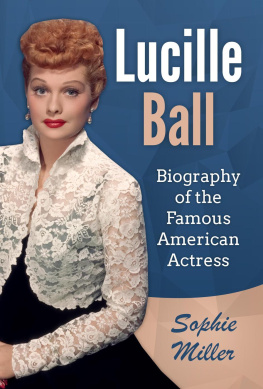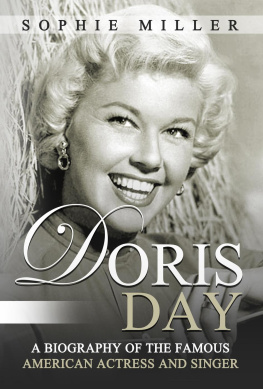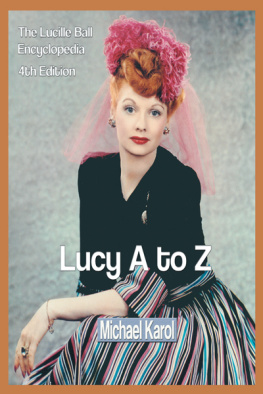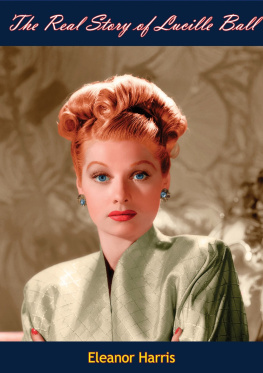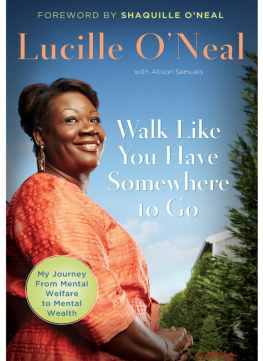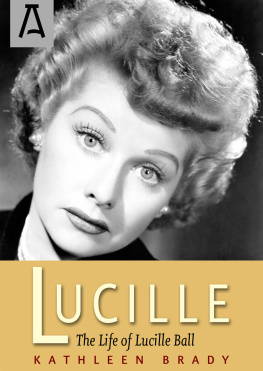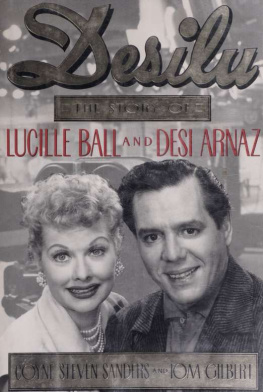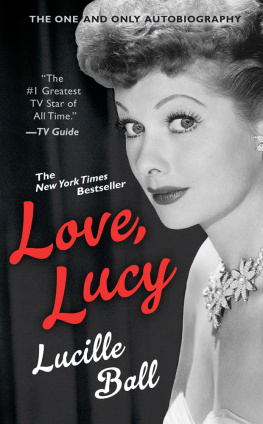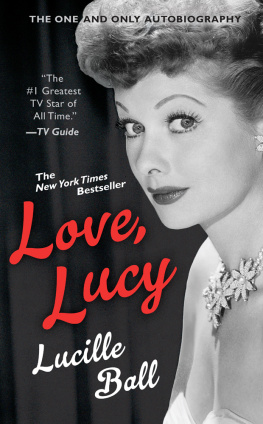LUCILLE BALL
Biography of the Famous American Actress
Sophie Miller
Copyright 2020 - All rights reserved.
The content contained within this book may not be reproduced, duplicated or transmitted without direct written permission from the author or the publisher.
Under no circumstances will any blame or legal responsibility be held against the publisher, or author, for any damages, reparation, or monetary loss due to the information contained within this book, either directly or indirectly.
Legal Notice:
This book is copyright protected. It is only for personal use. You cannot amend, distribute, sell, use, quote or paraphrase any part, or the content within this book, without the consent of the author or publisher.
Disclaimer Notice:
Please note the information contained within this document is for educational and entertainment purposes only. All effort has been executed to present accurate, up to date, reliable, complete information. No warranties of any kind are declared or implied. Readers acknowledge that the author is not engaging in the rendering of legal, financial, medical or professional advice. The content within this book has been derived from various sources. Please consult a licensed professional before attempting any techniques outlined in this book.
By reading this document, the reader agrees that under no circumstances is the author responsible for any losses, direct or indirect, that are incurred as a result of the use of information contained within this document, including, but not limited to, errors, omissions, or inaccuracies.
Table of Contents
Lucille Ball: Introduction

I am not funny. My writers were funny. My directors were funny. The situations were funny. What I am is brave. I have never been scared. Not when I did movies, certainly not when I was a model, and not when I did I Love Lucy. Lucille Ball, Rolling Stone magazine, 1983
T he year is 1985. A grimy, raggedy old lady in the South Bronx is leaned against the wall of a building thats more rubble than not, panned over by cameras and a production crew for the upcoming film Stone Pillow . Slowly, a crowd forms around the rows of barricades and police cars separating the group from the stage. A chant ripples through the gathering masses, indistinguishable at first, and growing louder until three words roar into the night: WE LOVE LUCY! WE LOVE LUCY!
For more than thirty years, Lucille Ball was hailed as one of the worlds most beloved entertainers. Her name was synonymous with the ginger-haired belle who dominated hearts and prime time television slots worldwide. She was the queen of onscreen comedy, the damsel who distressed herself into one hilarious situation after another. She wasnt afraid to play the role and look the part that other women of the day werent: crazy, fun, down-to-earth, and just as willing to get her hands dirty as any man onscreen.
Lucille Balls most famous character was known simply as Lucy onscreen. Ball played a scatterbrained klutz of a housewife who had a talent for making the simplest tasks into a fiasco of elephantine proportions. Unsophisticated, clumsy, and female, she still managed to win hearts and minds across the nation and the world.
That is not all she was, however.
Lucille Ball also had a keen eye for business. She used her stardom to catapult herself into a realm where men had to take her seriously in a time when they respected no woman seriously. Once she was there, she navigated and acted and spent her way into being the first woman ever to own a Hollywood production studio, Desilu.
Despite this, Ball maintained as humbling a persona as a superstar of the day could expect. She never claimed her success as the result of her own hard work and talent, instead stating that she owed more to intense bravery and an excellent supporting cast. Her most significant achievements, Ball would say, were her two children, Lucie and Desi, Jr.
Ball kick started her career by dropping out of high school at fifteen years old. She moved to New York City to study acting but was so unsuccessful that the head of the school sent a letter to her mother explaining why Ball would never make it in the business. After acting came modeling, including a prestigious role as the Chesterfield poster girl, as well as chorus girl work in the 1933 film Roman Candles.
Although Ball tried every trick in the book over the next decade to burst onto the public stage with gusto and gumption, she never made it beyond a B movie. She was too uncoordinated, too brash, too tomboyish to be a genteel lady or a dazzling movie star. Instead, she was Lucy, adorable, fun-loving, and willing to take a pie to the face when other women turned up their noses.
By the end of the 1930s, you were sure to see Ball onscreen if you went to the movies but always as a college girl, dancer, or a nurse. By the mid-1940s, Ball had participated in nearly seventy films and had gained the moniker Queen of the Bs.
A virtual jack-of-all-trades, Ball was universally recognized for her genuine talent and charisma on and off screen. Still, it wasnt until she joined the radio show My Favorite Husband that the world got to see her true potential. A comedy about a housewife who bumbled into one hilarious situation after the next, My Favorite Husband was the precursor to her famous namesake television show.
When at last she took her act to living room televisions nationwide, Ball managed to capture the hearts and minds of even the most cynical viewers among us. People werent tuning in to see their program they were tuning in to see what their favorite crazy, fun-loving neighborhood redhead Lucy was up to this week. The show gave the average American a lens with which to positively view the frustrations and dreams in their everyday lives while always achieving the happy endings that seemed to elude them.
Ball used her superstardom to progress the lives of the everyday woman by taking control of her career as a woman of the 40s and 50s. She started a production studio with her husband, appropriately named Desilu (Desi plus Lucy), and by the 60s had bought out every share her husband had owned making her the first woman to ever own a Hollywood production studio.
When she became pregnant with her second child, she insisted her television character be pregnant too. Despite the normative taboo of having a pregnant woman on television at the time, Lucy got her way, and everyones lovable neighborhood Lucy got to announce to the viewing world that she was spectin.
Balls show was a cultural favorite for ten years, after which she and her on- and off-screen husband divorced. She returned to television under her namesake show twice more, with The Lucy Show and then with Heres Lucy . Lucille Lucy Ball had found the secret to a long-lasting television career: Americans could not live without her.
Next page
